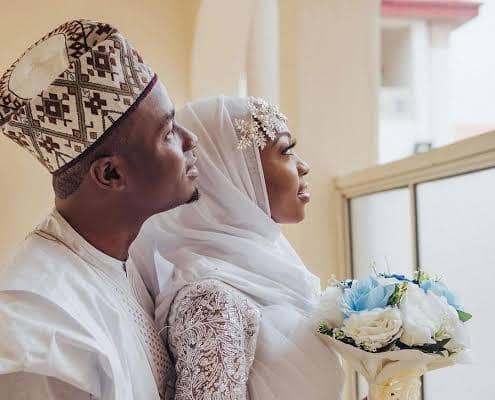The Joy Of Our Eyes: The nature of marriage in Islam
In an era marked by rapid cultural, economic, and ideological transformations, the institution of marriage stands at a crossroads.
As societal norms evolve, many wonder if the fundamental aspects of human connection have been overshadowed by contemporary ideals.
To navigate this uncertainty, it is essential to revisit the timeless teachings of Islam, which illuminate the profound purposes of marriage, anchoring us in truth.
The Divine Purpose of Marriage
At its core, marriage in Islam is not merely a legal contract but a sacred covenant designed to cultivate love, compassion, and mutual support between a husband and wife.
The Prophet Muhammad (peace be upon him) highlighted this beautifully, stating, “There is nothing like marriage for two who love one another.” This sentiment echoes the words of the Quran:
“And one of His signs is that He created for you spouses from among yourselves so that you may find comfort in them. And He has placed between you compassion and mercy.” (Surat Ar-Rūm 30:21)
This divine orchestration reminds us that marriage is a source of tranquility and a refuge for the heart.
Companionship and Kindness
Islamic teachings emphasize the significance of kindness and fairness within marriage. As instructed in the Quran, believing men are called to “live with your wives in fairness and kindness.”
This encompasses fulfilling their rights, maintaining a cheerful demeanor, and nurturing a loving environment. Imam al-Qurtubi elaborated that such kindness fosters familiarity and companionship, essential for a harmonious household.
Furthermore, the mutual roles of men and women are intricately woven into the fabric of marriage, where each partner complements the other.
The Quran states that “they are a garment for you, and you are a garment for them.” This metaphor beautifully illustrates the idea that men and women provide emotional and physical support to one another, creating a balanced and nurturing partnership.
The Role of Caretakers: Qawwamun
The Quran identifies men as “qawwamun” — caretakers of women. This term signifies a responsibility to provide and protect. However, this role is conditional upon the ability to fulfill financial obligations; if a husband cannot provide, he loses his status as a qawwam. This reflects the seriousness of the marriage contract, where both partners must contribute to the household’s well-being.
The Prophet Muhammad (peace be upon him) used the analogy of shepherds to describe the responsibilities of spouses, emphasizing that both partners must care for their family and household affairs.
Love, Intimacy, and Procreation
Marriage serves not only as a social institution but also as a platform for love and intimacy. The Prophet (peace be upon him) stated, “In sexual intercourse, there is charity.” This highlights that fulfilling one’s desires within marriage is an act of worship, provided it is approached with kindness and the intention of procreation.
READ ALSO: The Power of Justice: How Islam combats crime with divine law
Imam al-Ghazali emphasized that procreation is a foundational aspect of marriage, ensuring the continuity of humanity. However, it is essential to recognize that marriages can thrive without children. The essence of marriage lies in companionship, love, and mutual support, fulfilling the deep human need for connection.
Tenderness and Joy in Marriage
Marriage should also embody joy and fun. The Prophet Muhammad (peace be upon him) exemplified a cheerful disposition, engaging in playful interactions with his wives. Aisha (may Allah be pleased with her) recounted a playful race with the Prophet, illustrating that even amidst responsibilities, laughter and joy are vital in fostering a strong bond.
One touching example of tenderness in marriage is the story of Abu Talha and Umm Sulaim. In a moment of profound grief, Umm Sulaim chose to comfort her husband before revealing their son’s passing. Their story exemplifies the delicate balance of love, support, and resilience within a marriage.
Conclusion
Ultimately, marriage in Islam is a divinely ordained institution characterized by love, companionship, and mutual respect. It serves as a foundation for procreation, a source of intimacy, and a sanctuary for tenderness.
Despite the challenges posed by modernity, the essence of marriage remains unchanged. As believers, we must uphold the values of compassion and understanding that enrich our relationships.
As we reflect on the beauty of this sacred partnership, we are reminded of the words of the Quran: “Those who say: ‘Our Lord! Grant us from our wives and children the joy of our eyes!’” This prayer encapsulates the hope and fulfillment that a loving marriage brings, serving as a testament to the enduring significance of this sacred bond.
Follow the Neptune Prime channel on WhatsApp:
Do you have breaking news, interview request, opinion, suggestion, or want your event covered? Email us at neptuneprime2233@gmail.com





